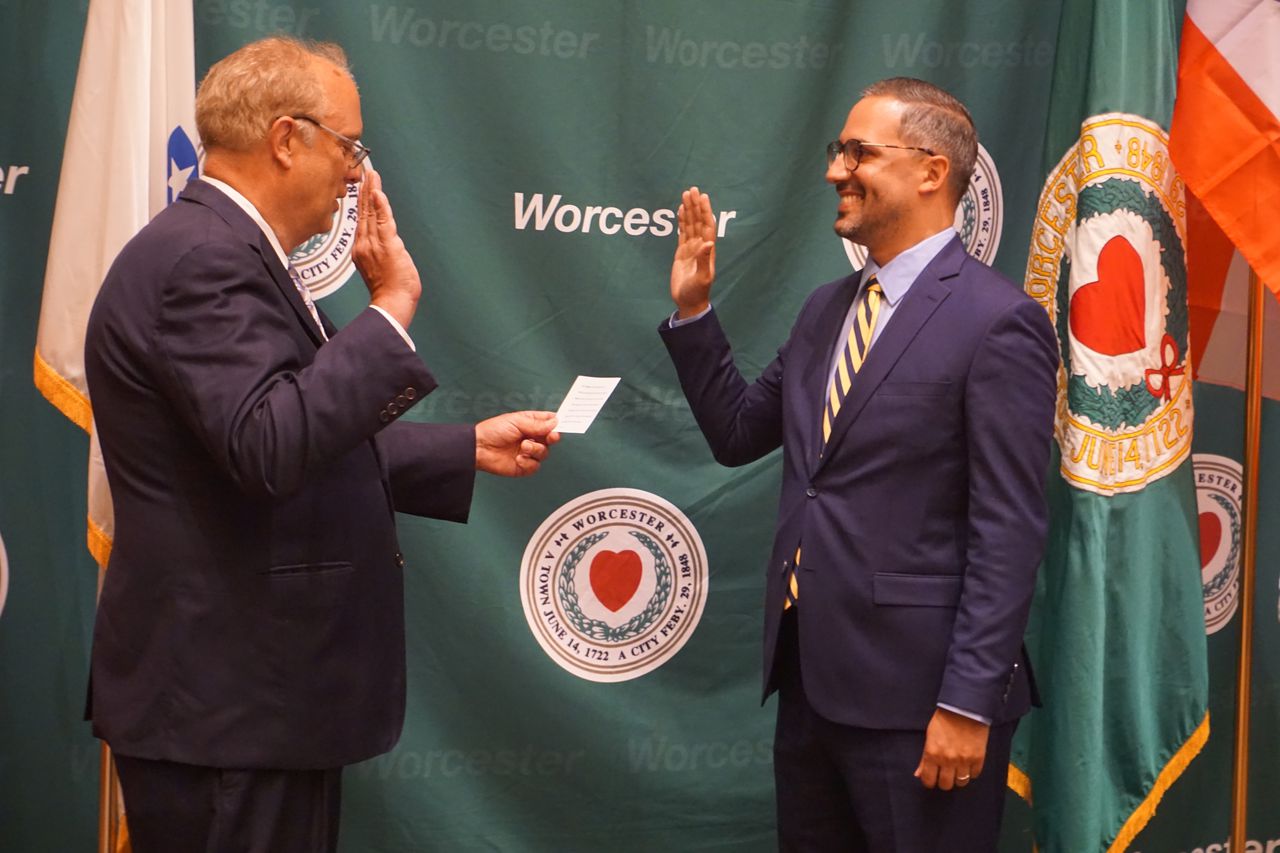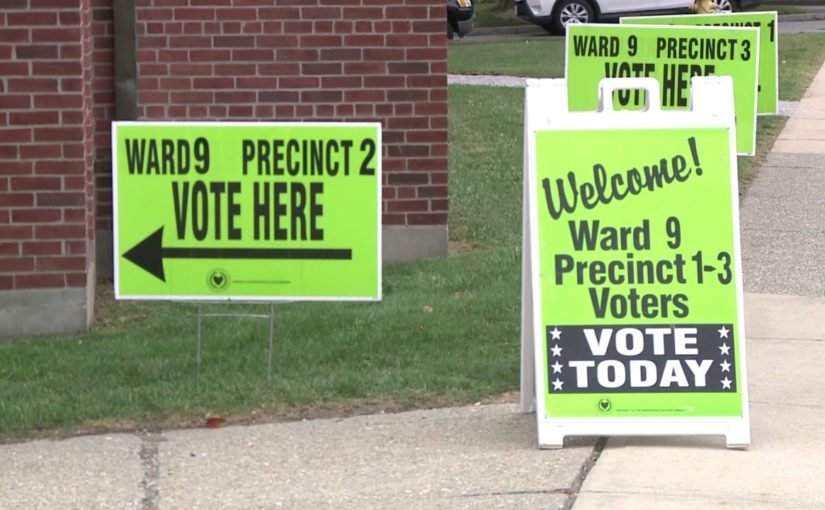For some reason, the left wing of Worcester’s city council has become so enamored of a specific way of searching for the city’s chief executive that it eclipses the goal of filling the spot with the right person. The term “national search” is repeated as nauseum with a sort of fervor that borders on the religious, as if this particular ritual were an end in and of itself.
But why? The answer isn’t readily apparent.
The Worcester Public Schools Superintendent Example
Adherents of the national search ritual point to the selection earlier this year of Dr. Rachel H. Monárrez to replace the outgoing Maureen Binienda as superintendent of the Worcester Public Schools, which took place only after a painstaking national search was conducted by the school committee. If the city needed a national search for a school superintendent, why shouldn’t we conduct a national search for our chief executive, the city manager?
The answer is straightforward: the Worcester Public Schools are failing, while the city itself is not. The schools system isn’t in dire straits because of Binienda or any policies she implemented; it has been for decades, and there’s no clear reason why. At least as far back as the 1980s, the system was a mess. During my four years of high school alone, during the 1990s, gym classes were ended for all juniors and seniors (too expensive), a period was cut from the end of the day to save money, and the state considered de-accrediting Worcester’s schools. The air was so toxic in North High at the time that, just after I graduated, the state threatened to shutter the school unless the city intervened and did something about the strangely-thick air permeating the windowless basement classrooms. The city obliged, setting up large blowers to circulate air down the hallways and outside.
The financial situation during that period was so bad that the school committee called a snow day – in June of 1989. This gave students and teachers time off to lobby at the statehouse for more funding. Hundreds of kids and our teachers descended on Boston to implore Governor Dukakis to send more money our way.
Now, years later, the schools have received more money, and the school committee has allocated funding to replace all the high schools with modern, non-poisonous buildings, starting with Worcester Vocational High School, now Worcester Tech, and then North High. Despite controversy during her tenure over her position that poverty was a more important issue than structural racism, Binienda’s tenure saw some innovative changes.
Despite these changes, Worcester public schools are still, to put it mildly, troubled. Out of the 24,000 or so high schools in America, North High ranks somewhere between 13,383rd and 17,843rd, according to U.S. News and World Report. These are national rankings, so thank you to Mississippi and Alabama. Other schools in the city aren’t much better: the number one school in the district, University Park, is number 82 in Massachusetts alone, and prepares only about 48.5 percent of its students adequately for college – less than half. The corresponding figure for other schools in the city is between 18.5 percent to 32 percent, or below a fifth to just under a third. Reading and math grade-level proficiency is also abysmally low.
Worcester’s schools have improved incrementally, but they have been bad for decades. There have been multiple superintendents over these years, and there have always been brilliant students, educators, and administrators in the city’s schools. Clearly something has to be changed on a systemic level. It therefore makes sense for the city to engage in a national search, specifically to find someone from outside the school system, who can look at the way it functions, look at its culture, as an objective outsider, in order to make the changes that might be both necessary and painful to those who’ve come of age in the school system professionally.
Worcester isn’t its School System
Worcester, though, is actually already moving in the right direction. Anyone who remembers this city in the 1980s or 1990s can attest to that fact. In the 1980s, Worcester was a decaying mill town. The New York Times described it that way when its reviewer wondered why Bruce Springsteen would open his tour here, leading to a quixotic boycott of the Gray Lady, even though no one really thought the description was wrong.
From the 70s through the 90s, the population was shrinking, reaching a nadir of around 160,000 residents, 40,000 people less than lived here in the middle of the 20th century, and nearly 50,000 people less than call the city home now. Despite an attempt to revive downtown with a mall – twice, first with the Worcester Galleria, and then with the Worcester Common Fashion Outlets – the common refrain was, “Would the last person to leave downtown Worcester please turn out the lights?”
No one wanted to be here; the selling point on Worcester that colleges offered was nothing more than its proximity to other places. “Don’t worry about Worcester! We have a lovely campus with a big fence, and you’re not that far from Boston or Providence, or even NYC!” I recall students at Clark (where I attended briefly in the 1990s, before, like so many thousands of others, leaving town) expressing their despair at not having learned more about Worcester before deciding which school to go to – and making an alternate decision. Now, students come to Worcester and – almost unheard of even a decade ago – actually stay here.
City Leadership and the Renaissance
The beginnings of the “Worcester Renaissance” pre-date the tenure of Ed Augustus, the city manager who recently resigned, leaving open the current vacancy. Union Station, for example, was remodeled in 2000, before his time as manager. However, it was during Augustus’s tenure that the city’s changes took root and, for the first time, actually seemed permanent.
While Augustus was in office, the quality of the city, and of its government, were strong and were continually improving. During the height of the pandemic, America was subjected to bizarre, rambling press-conferences in which the president and his advisers said nonsensical things (maybe try a little bleach?), and the national health apparatus confused everyone by issuing contradictory rulings (don’t wear a mask, masks are okay, definitely wear a mask, any mask is good, only these kinds of masks are good, if you have a vaccine you don’t need to wear a mask, no, never mind, you do, and stay inside, church services are illegal, outdoor events are illegal, you should go to these demonstrations though, don’t get together…). In Worcester, Augustus, along with Mayor Joe Petty, and chief doctor Michael P. Hirsh, sometimes with public health commissioner Mattie Castiel, held daily press conferences that were pleasantly boring. The city leaders worked around the clock to make sure we had the information we needed, to provide the best possible guidance based on the information they had been given, and to generally make Worcesterites feel like they were in good hands, at least locally.
Now, as the pandemic recedes (hopefully), the city has rebounded.
After Augustus retired this past spring, Eric D. Batista became acting city manager. Appointed by Augustus, Batista has moved up the rungs of city management. Hired as a project manager, he became the director of operations and project management, then moved up to lead the city’s innovation office, and then on to assistant city manager. Raised in Worcester, a graduate of North High School (according to speakers at the recent city council meeting), Batista obviously knows the city well.
Batista spent a decade in city government, watching and assisting in the improvements, most recently as assistant city manager. If the city were in turmoil, or were heading in the wrong direction, or was decaying in the way that it was during the 1980s and 1990s still, then we would need to carry out a national search, to look everywhere to find someone who could help us to break us out of the municipal malaise. But the city leadership, Augustus and others, have already done that – with Batista’s assistance.
Considering the above, it becomes clear that there is no need for an expensive – some say $100,000 – national search to find a replacement for someone already doing solid work, and who has been trained, gaining increasing responsibility, over the course of a decade on the job. There is no virtue in hiring from without. Studying organizations, scholars at the Wharton School of Business say that internal hires tend to do better in their first two years than external hires, for several reasons, including getting “up to speed,” meaning, largely, building relationships. While external hires might do better after a couple years, they are also more likely to leave before that period is up. Others note that with when hiring from within, there’s less risk – you know what you’re getting. Also worth noting: in corporate America, corporations that are doing well don’t generally replace an outgoing CEO with someone from outside. For example, Coca Cola’s CEO, James Quincey, worked his way up the management chain, making his way to COO and, now, to CEO. Those who read the business pages know that it’s the ailing businesses that make headlines by replacing their CEO with someone from another, more successful, firm.
Why should Worcester break with good practice?
Where is “the best”?
Some argue that if we don’t have a national search, there will be a cloud hanging over Batista, since we won’t know if we have “the best.” How can this be? Is there a cloud hanging over the Coca Cola CEO, since he was hired from within? Or of Wendy’s? Or of a myriad other successful corporations? Why must we have an obsession with finding someone from outside? Is there a cloud hanging over, say, any of the district councilors because voters didn’t entertain the possibility of electing someone from outside the district? Are at-large councilors therefore superior in quality to district councilors?
One could become philosophical, and wonder if anyone is “the best” for anything. Perhaps the best manager for the city of Worcester is not in America; why limit the search to the United States? Maybe the perfect manager is in Toronto? Perhaps London offers the best city manager. Maybe they are in Cape Town or Perth or Shanghai? (Actually, scratch Shanghai.) There are 7 billion people in the world; there is no way that we can interview all of them, even if we narrow that down to the few tens of millions who are trained in public management. Perhaps your spouse isn’t really the best for you; did you conduct a national search, or did you limit yourself only to people you happened to come into contact with? This is extreme, but it is the natural logical conclusion that we come to if we follow the logic that we have to run a national search just to be sure.
Transparency
Others have argued that there could be a perceived lack of transparency. Where is this lack of transparency? The process is fairly straightforward:
- Batista applied for the job of project manager with the city and was hired in for that role in 2012.
- He did a good job, so Augustus promoted Batista to chief of Operations and Project Management in 2015
- Seeing that Batista continued to do good work, Augustus promoted him to Director of Innovation in 2019.
- Apparently highly impressed, Augustus promoted Batista to Assistant City Manager in 2021.
- Augustus resigned as city manager, and the council asked Batista to become Acting City Manager.
- Impressed with his work in the actual position needing fulfillment and with the decade’s worth of work that Batista has performed for the city already, people began to think that Batista should simply maintain the role and save the city the costly $100,000 search.
- In line with public sentiment, Mayor Petty proposed that the city council just go ahead and hire Batista to the position.
Where’s the lack of transparency? Judging by the council meeting earlier this week, the public is well aware, and supportive, of Batista’s becoming city manager. While a few spoke in favor of a national search, many people from the community, including community leaders like Rev. Jose Perez, spoke in favor of Batista’s appointment to the position.
Worcester is doing well, and after many decades, it is moving forward. For many of us who grew up here, this is the first time we’ve ever seen or heard of people wanting to move to the city, of news outlets in major markets actually trumpeting what Worcester has to offer. For the first time in years, many of us go downtown to do something fun, or actually have a choice of where to go to eat. We have attractions to show out-of-town visitors that don’t solely involve boy-on-turtle sex.
There is no reason to change direction, and, for that reason, there is no reason to carry out a national search for a city manager. It is in the interest of the city to keep the “renaissance” moving forward, and appointing a city manager who worked so closely with Ed Augustus, the man responsible for guiding so much of it, is the best way to do that.
The council should do what’s right for Worcester, and appoint Eric Batista city manager now.



